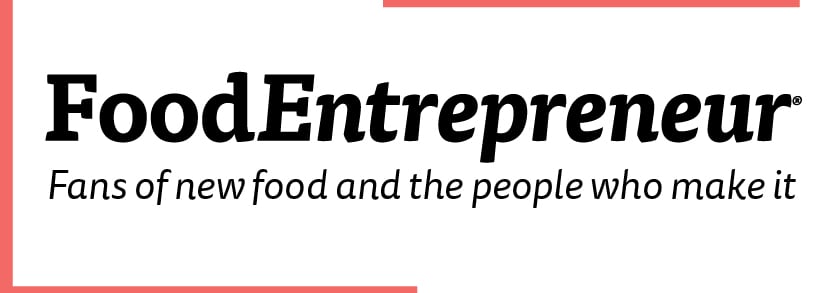 KANSAS CITY — One innovation focuses on sweet taste receptors to allow reductions of sugar in foods and beverages. Another creates fiber-rich sugars, and a third reduces costs in producing a “rare sugar.” All three companies began as startups and are now on the cusp of commercialization.
KANSAS CITY — One innovation focuses on sweet taste receptors to allow reductions of sugar in foods and beverages. Another creates fiber-rich sugars, and a third reduces costs in producing a “rare sugar.” All three companies began as startups and are now on the cusp of commercialization.
“An idea is one thing,” said Ed Rogers, co-founder and chief executive officer of Bonumose, Inc., Charlottesville, Va. “An idea is not a product, and a product is not a company, and a company is not a successful company. So, there is a long way to go.”
Tom Simmons, PhD, founder of The Supplant Co., Cambridge, United Kingdom, added, “Many of the decisions around how we efficiently go from being a science project to being a scalable business with a functioning supply chain are difficult to undertake as they involve a different perspective from my technical-heavy scientific background. This has pushed me to put my trust in experts outside of the science realm and ultimately build the foundation of the team we have today.”
Kitchen origins
DouxMatok, Petach-Tikva, Israel, began humbly. Eran Baniel in 2013 received a phone call from his father’s housekeeper. She said Avraham Baniel, PhD, then in his 90s, was burning items in the kitchen. He was experimenting with sweeteners.
Dr. Baniel, a chemist, was no ordinary nonagenarian. When the state of Israel was established after World War II, Chaim Weizmann, the country’s first president and a famed scientist, selected him to help the government make Israel viable economically, Eran Baniel said. Dr. Baniel later was a consultant for a sucralose company.
Eran Baniel found a laboratory for his father. In 2014, he organized a meeting with an innovation team from Strauss Group, an international food and beverage company in Israel. The Strauss team was so impressed that Eran Baniel incorporated DouxMatok the next day.
DouxMatok offers Incredo sugar, which is made from cane or beet sugar and has 24 patents. Incredo improves the efficiency of sugar delivery to the sweet taste receptors and enhances the perception of sweetness, enabling sugar reduction without compromising taste, mouthfeel or texture, according to the company. Sugar may be reduced by 30% to 50% in a range of products.
The company in 2019 raised $22 million in a Series B funding round led by BlueRed Partners from Singapore. Investors included Südzucker AG, Royal DSM and Singha Ventures.
In 2021, Ari Melamud was hired as chief executive officer, and Eran Baniel moved to chairman of the board of directors from CEO. Mr. Melamud previously held CEO roles with Kimberley-Clark and Sharon Laboratories.
“After working for corporations and large companies for so many years, I had a strong desire to work for a smaller company under two conditions,” he said. “One is, I believe in the (company’s) technology, and two is, it can change the world. I wanted to be part of something that is actually very meaningful.”
Avraham Baniel passed away on Jan. 6, 2022, at the age of 103. His legacy continues in the expansion of DouxMatok.
Kelly Thompson early in 2022 was named senior vice president, head of North America for DouxMatok. She previously held executive roles at Continental Mills, Inc.; Dean Foods; and Kraft Foods. Batory Foods, Rosemont, Ill., added Incredo sugar to its portfolio of food ingredients through an agreement between the two companies. DouxMatok and Blommer Chocolate Co. entered a commercial partnership to produce and sell a portfolio of chocolate products with less sugar.
Mr. Melamud said Incredo will launch in Europe soon and possibly in Asia and South America later this year.
“The challenges have moved from an early-stage startup to a commercial base,” he said.
Upcycled fiber
The Supplant Co. introduced Supplant sugars from fiber in 2020. The company uses fiber-rich parts of crops like stems, stalks, husks and cobs. Enzymes from fungi break down the long chains of sugar found in the fiber. The longer chains, called polysaccharides, are separated into shorter chains of sugar, called oligosaccharides, leaving a long-chain and short-chain blend the company calls sugars from fiber.
The fiber-derived sugars behave like traditional sugars in food but retain certain fiber-based qualities, according to The Supplant Co. They caramelize, bake and cook like traditional sugars. The fiber-derived sugars are lower in calories (1.8 calories per gram) than sugar (4 calories per gram) and have a lower glycemic response.
The Supplant Co. has achieved self-affirmed Generally Recognized As Safe (GRAS) status for its sugar but has yet to receive a “no questions” letter from the US Food and Drug Administration, Dr. Simmons said. The company has raised more than $30 million in funding. Investors include actress, producer and cookbook author Ayesha Curry and National Basketball Association player Chris Paul. Institutional investors include Manta Ray, Khosla Ventures, Felicis Ventures, EQT, Coatue and Y-Combinator.
“Our production facility holds multi-ton supply capabilities,” Dr. Simmons said. “One advantage of our process is it is inherently scalable using equipment and processes already used in the food industry.
“With our approach not only can we reduce sugar across food categories, but the way we’re doing it is the only way you’ll ever be able to do mainstream sugar reduction across the food industry. That’s because if you want to replace sugar mainstream across the food system you need a raw material that is more abundant and cheaper than sugar. Agricultural side streams are the only things that fit the bill.”
The fiber-rich sugars also count as upcycled ingredients, he said.
“In many ways what we do can be the most extreme form of upcycling, given that the side streams we use are collectively the most abundant thing produced by our agricultural system and in many cases come right from the farm rather than from a specific food process,” he said.
A cost-effective ‘rare sugar’
Tagatose is 90% as sweet as sugar without any bitter notes or off-flavors, according to Bonumose. Rare sugars like tagatose are called so because they are found in small quantities in nature. Tagatose has been commercially available for over 15 years. The typical production process starts with raw materials usually derived from milk. Yields are low, making tagatose more expensive.
Daniel Wichelecki, PhD, invented an enzymatic pathway for low-cost tagatose. Dr. Wichelecki, as chief scientific officer, and Mr. Rogers, as CEO, co-founded Bonumose in 2016. Bonumose uses plant-based raw materials, which may count as upcycled depending on the materials, and enzymatic processing steps that result in higher yields, Mr. Rogers said.
“To be clear, no we don’t claim that we invented tagatose,” he said. “We are not the first ones who tried to commercialize tagatose. Tagatose is great from anybody. What we offer is a cost advantage because of the enzyme process, which we’ve now extended to multiple other things.”
The Hershey Co., Hershey, Pa., and ASR Group, West Palm Beach, Fla., partnered in 2018 to co-lead an equity investment in Bonumose. The ASR Group is now Bonumose’s distribution partner in the United States, Canada, Mexico and Western Europe.
Bonumose received a “no questions” letter from the FDA about the GRAS status of its tagatose process in 2021 and a “no objections” letter from Health Canada came about the same time, Mr. Rogers said.
Bonumose opened its first commercial production facility in 2022. Potential sugar reduction applications for tagatose include confectionery items, ready-to-eat cereal, ice cream, yogurt, beverages, meal replacement drinks, cookies and bars.
The FDA lists tagatose, which has 1.5 calories per gram, as a sugar since it is a monosaccharide, but Bonumose has presented about 100 studies showing tagatose should be identified as a fiber because of its physiological effects that are beneficial to human health, Mr. Rogers said.Enjoying this content? Learn about more disruptive startups on the Food Entrepreneur page.





